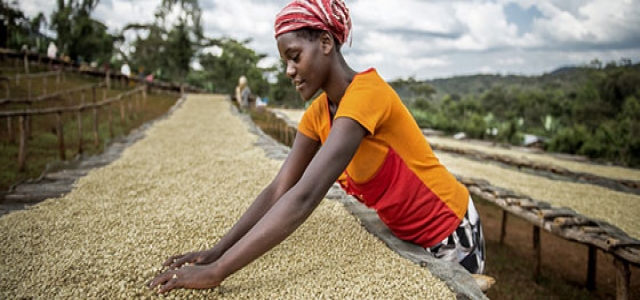 Konga, Ethiopia: Data on gender equality can highlight gaps and help monitor progress. (© Panos/A.)
Konga, Ethiopia: Data on gender equality can highlight gaps and help monitor progress. (© Panos/A.)
By Sarah McMullan
What inequalities do women face in Ethiopia?
In rural Ethiopia, people say farming is a man’s job. In reality, women play a large role in agriculture from farm to table. Take a drive through the countryside, and you will see women planting, weeding, tending to gardens, and harvesting, among other farm activities. The markets are bustling with women selling produce and small livestock in addition to spices, honey, and shea butter.
Why, given their many contributions to agriculture, are women so often marginalized? To help shed more light on gender inequalities, researchers from IFPRI’s gender team and Research for Ethiopia’s Agriculture Policy (REAP) Program are analyzing national data to compare differences between male- and female-headed agricultural households, reviewing the literature on gender gaps in agriculture, and offering training on collecting sex-disaggregated data. Moving forward, the team will shift from comparing male- and female-headed households to showing other indicators that can lead to deeper analysis and understanding of women’s role in agriculture.
This work, says Seblewongel Deneke, director of the Gender Program at the Ethiopian Agricultural Transformation Agency (ATA), will generate evidence to help design and implement agricultural policies and programs. “Gender equality,” she says, “is recognized as a critical development issue in Ethiopia.”
Slow Progress
Over the past two decades, the Ethiopian government has started to chip away at gender inequality. An overhaul to family law provided stronger rights for women in terms of land ownership, inheritance, and marriage. The government introduced a requirement that land certificates include the name and picture of both the husband and wife. According to Cheryl Doss of Yale University, who serves as the gender team leader of the IFPRI-led research program on Policies, Institutions, and Markets, “When men and women have secure property rights, they experience lower vulnerability and are better able to cope with shocks.”
Girls’ access to education has also improved. In 2000, Ethiopian schools enrolled 71 girls for every 100 boys; by 2007, the number of girls enrolled for every 100 boys had risen to 87. A recent World Bank study found that when women have access to education, the entire household experiences better health, nutrition, and education.
Read more »
—
Join the conversation on Twitter and Facebook.

























